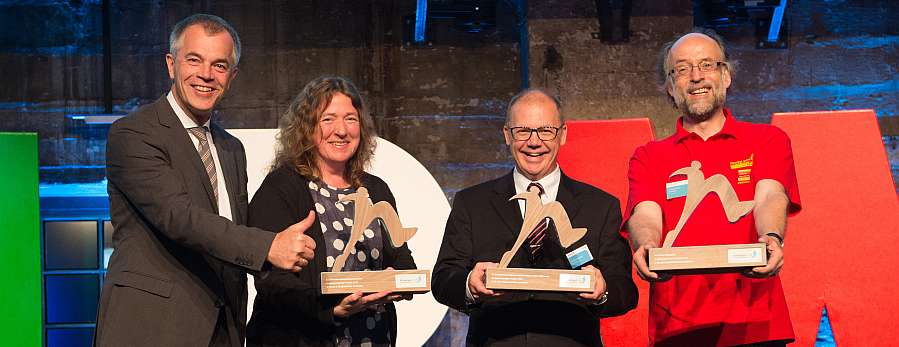Sustainability
German state minister honors electricity-saving process

The new oxygen depolarized cathode (ODC) Technology won second place in the "Conserving Ressources" category. “With this project Bayer MaterialScience is showing how the energy-intensive chemical industry can make a contribution to climate protection and at the same time strengthen its competitiveness,” said Remmel in the presence of around 350 guests.
The annual convention was officially opened by North Rhine-Westphalian State Premier Hannelore Kraft. “North Rhine-Westphalia's potential as the number one industrial and efficiency region in Germany is enormous, and we are well on the way to becoming number one in climate protection too,” said the State Premier. Up to 30 percent less electricity
The oxygen depolarized cathode (ODC) technology developed jointly by Bayer MaterialScience and Thyssen Krupp reduces the amount of electricity needed for the very energy-intensive production of the important basic chemical chlorine by up to 30 percent. If, for example, all chlorine producers in Germany were to adopt this technology, which has now reached market maturity, the country's overall electricity consumption could be reduced by around one percent, which is about as much energy as is needed in one year by a large city like Cologne.
“The technology can play a key role in Germany’s energy transition, which focuses in particular on improving energy efficiency,” said Dr. Klaus Schaefer, head of Production and Technology at Bayer MaterialScience. “We are delighted that the state government is acknowledging our commitment,” said head of Basic Chemicals Dr. Ralf Echterhoff, who accepted the prize on behalf of Bayer MaterialScience. To become successful, innovations such as the ODC technology require a lot of patience and above all committed employees, who do not give up easily and are staunch advocates of the projects they are involved in.
